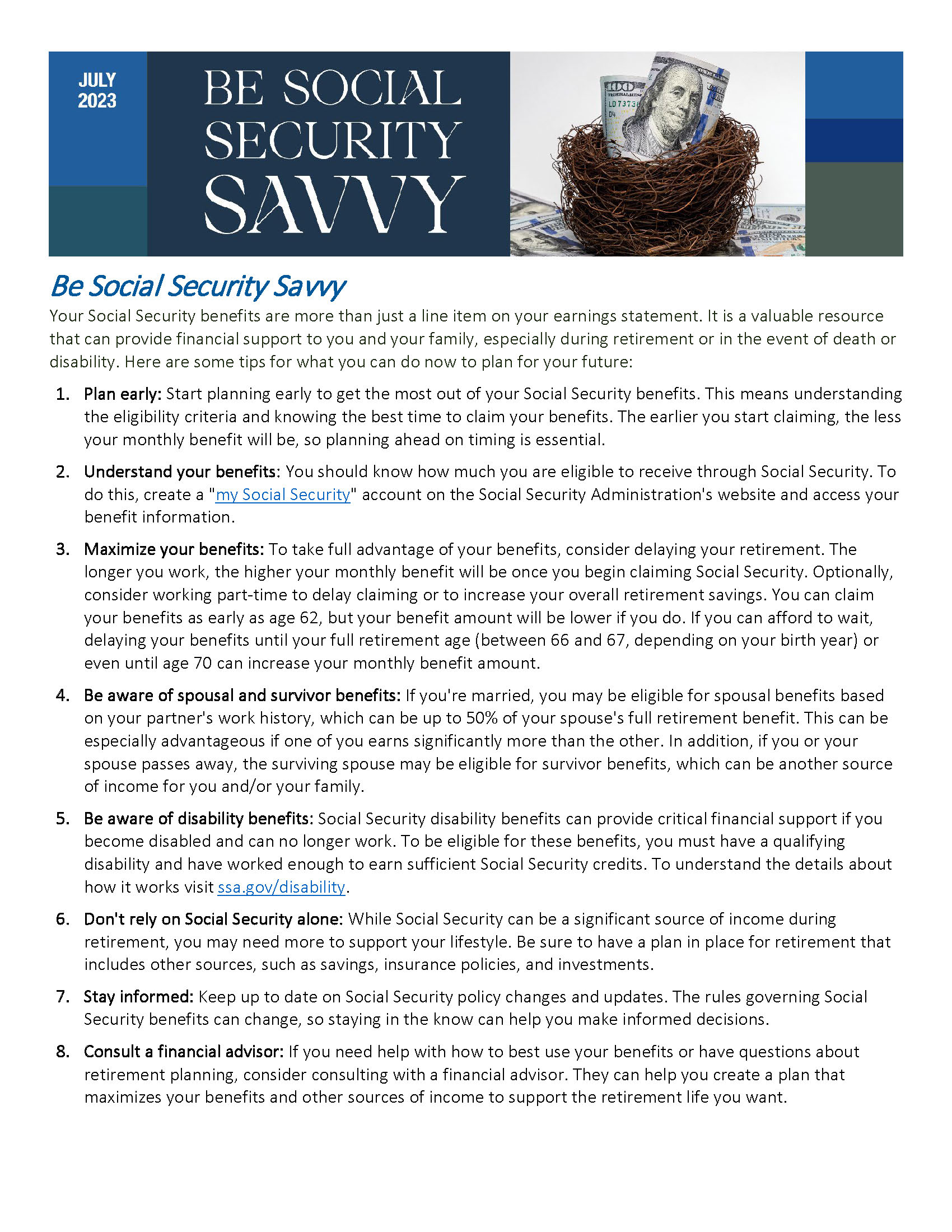
Your Social Security benefits are more than just a line item on your earnings statement. It is a valuable resource that can provide financial support to you and your family, especially during retirement or in the event of death or disability. Here are some tips for what you can do now to plan for your future:
- Plan early
Start planning early to get the most out of your Social Security benefits. This means understanding the eligibility criteria and knowing the best time to claim your benefits. The earlier you start claiming, the less your monthly benefit will be, so planning ahead on timing is essential. - Understand your benefits
You should know how much you are eligible to receive through Social Security. To do this, create a "my Social Security" account on the Social Security Administration's website and access your benefit information. - Maximize your benefits
To take full advantage of your benefits, consider delaying your retirement. The longer you work, the higher your monthly benefit will be once you begin claiming Social Security. Optionally, consider working part-time to delay claiming or to increase your overall retirement savings. You can claim your benefits as early as age 62, but your benefit amount will be lower if you do. If you can afford to wait, delaying your benefits until your full retirement age (between 66 and 67, depending on your birth year) or even until age 70 can increase your monthly benefit amount. - Be aware of spousal and survivor benefits
If you're married, you may be eligible for spousal benefits based on your partner's work history, which can be up to 50% of your spouse's full retirement benefit. This can be especially advantageous if one of you earns significantly more than the other. In addition, if you or your spouse passes away, the surviving spouse may be eligible for survivor benefits, which can be another source of income for you and/or your family. - Be aware of disability benefits
Social Security disability benefits can provide critical financial support if you become disabled and can no longer work. To be eligible for these benefits, you must have a qualifying disability and have worked enough to earn sufficient Social Security credits. To understand the details about how it works visit ssa.gov/disability. - Don't rely on Social Security alone
While Social Security can be a significant source of income during retirement, you may need more to support your lifestyle. Be sure to have a plan in place for retirement that includes other sources, such as savings, insurance policies, and investments. - Stay informed
Keep up to date on Social Security policy changes and updates. The rules governing Social Security benefits can change, so staying in the know can help you make informed decisions. - Consult a financial advisor
If you need help with how to best use your benefits or have questions about retirement planning, consider consulting with a financial advisor. They can help you create a plan that maximizes your benefits and other sources of income to support the retirement life you want.
Download the Campaign
|
Poster |
PDF Newsletter |
PT Newsletter |
|
For more information or additional help with retirement planning or understanding your Social Security benefits, contact your Employee Assistance Program (EAP). Call any time, day or night, to schedule a consultation with a financial expert about your situation. 24 HOURS A DAY
The EAP is a voluntary and confidential employee benefit available to eligible federal employees at no cost. |




